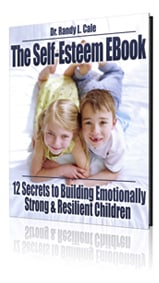Whether adults, young siblings, or older teens, you may often hear sometimes like this, “It’s YOUR fault that I am upset!” (And please note, this is always your son, daughter, spouse, friend, or relative…not you.)
So, just in case you have someone in your life who tends to see things this way, let’s cover this for their sake.
One of the Most Common Causes of Misery
Whether it was our parents, our friends, movies, books, or TV shows, we were all exposed to this misery-making strategy. In our daily lives, this may sound like:
- “I told you 100 times NOT to leave your clothes on the floor.”
- “Why do you just sit there? Why don’t you do something!”
- “You make me so angry when you don’t listen to me.”
- “It hurts me when you speak to me that way. Please stop.”
- “Can’t you just do it my way! What is wrong with you!”
When we don’t like the way things are going, or someone does something that violates our internal ‘rules,’ we often get upset. We will blame them for upsetting us or making us angry. It is usually true that we have expressed our desire for the way others should listen to us. We truly believe that those around us should now honor those rules because we have shared them many times. Inside, we think, “They should get it by now.”
But they don’t. In fact, they seldom do.
And thus, the more strongly we think they should be listening and honoring our rules…the more upset and angrier we become. Many relationships end this way in anger, rather than ending due to a lack of love. Many families are in constant conflict over such thoughts, and children grow up not only living in this misery but adapting this thought process as their own. Thus, we ensure their future misery as well.
Think About It: How Can Someone Else ‘Make’ You Upset?
How do they do that? Do they reach inside you and push the upset button? Is it something they do that moves you from calm to upset? Do they carry around a small control panel to your emotions, and then repeatedly select the ‘upset button’ to make your day miserable? I doubt it.
If this is true, it means that you have zero control over your life and your emotions. It means the entire world can likely access that emotional control panel and reap misery upon you. And even more problematic, it will be those closest to you who seem to have hijacked your control panel almost daily, and it is those loved ones who ‘push’ those emotional buttons the most.
Is this the way it really works? Again, I doubt it.
What if: I Am Responsible for All This Misery Making of Mine?
If this were true (and it is), then I would begin to embark upon a journey to understand my own misery-making. Certainly, I don’t want to be miserable. Certainly, I didn’t really choose to be upset in all those moments? Certainly, I am not to blame? That would be too much.
Agreed. Let’s abandon blame here. Please let that go for the moment.
But responsibility is another issue. If others are not to be responsible for my misery, then that only leaves me. So, let’s come to terms with this.
Responsibility: “The fact of having a duty to deal with something.”
That’s it. No blame. Just a duty to deal with this. So, it’s your life. If you want out of the misery and anger, then it’s your duty to deal with this (but only 100 percent). The first step in freedom is recognizing this very fact and take on the full duty of discovering your own internal rules and expectations are the cause of your misery.
As soon as we begin to see that our focus of attention (whether on children, spouse, friends, or co-workers) has been on others’ behaviors, and not on our own thoughts about their behavior, we take the first step in regaining our power to feel better. There is more to this, and we will cover a few more steps next week in part two.
Until then, how can you fully accept the ‘duty’ of dealing with your life?















